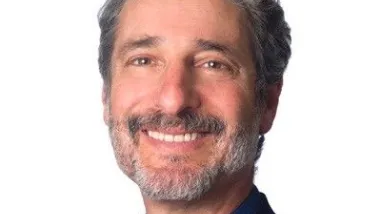A commodity is something that is normally bought and sold. Not everything is a commodity. Sure, most people need to purchase a certain amount of food, clothing and housing, but many other things that we value are not for sale. For example, simply purchasing exercise equipment will not make you physically fit – it requires effort. Similarly, health, safety, education, rewarding personal relationships, community and our satisfaction with life are aspirations that depend more on our behavior than on how much we spend.
A commodity is something that is normally bought and sold. Not everything is a commodity. Sure, most people need to purchase a certain amount of food, clothing and housing, but many other things that we value are not for sale.
For example, simply purchasing exercise equipment will not make you physically fit – it requires effort. Similarly, health, safety, education, rewarding personal relationships, community and our satisfaction with life are aspirations that depend more on our behavior than on how much we spend.
This is not to deny that a certain amount of money is helpful, for example, to afford good food, safe vehicles, and adequate schools, but spending more does not guarantee greater success. In fact, as we become materially wealthier, the benefits from additional spending tends to decline – we are often better off spending less money and more time on the activities we care about.
For example, it is common for people to work extra hard so they can afford an exotic holiday that they think need to recover from the stress of work. They would probably be better reducing their work hours, and the stress in their life, even if this requires accepting a less glamorous but cheaper holiday.
This has important implications for planning. There are two, mutually exclusive visions of "paradise." One envisions paradise as a commodity, a distant place that you can buy (for a home or cottage) or rent (as a holiday destination) if you can afford it. The more you spend, the closer you get to real paradise. This is the perspective that we commonly see in holiday and real estate advertising. Publications, such as "Sperlings Best Places" (www.bestplaces.net), claim to identify the cities that are best for certain groups or activities (such as "Best Cities For Seniors" and "Romantic Cities for Baby Boomers").
That perspective reflects the idea that people should continually move from one place to another, until they find the "best," and there is noting wrong with spoiling a place if you can afford to replace it with one that is better. This discourages people from putting their heart and soul into a particular location.
The other vision perceives paradise as something we create within our own community, by developing friendships, social institutions, businesses, services and a healthy environment. From this perspective, paradise is not a commodity, it is the outcome of the effort we invest into people and the build and natural environment in a particiular place.
The challenge facing planners is to help build a vision that every community can become paradise.
For more information see:
Todd Litman (2007), Community Cohesion As A Transport Planning Objective, VTPI (www.vtpi.org); and www.vtpi.org/cohesion.pdf.

Planetizen Federal Action Tracker
A weekly monitor of how Trump’s orders and actions are impacting planners and planning in America.

Chicago’s Ghost Rails
Just beneath the surface of the modern city lie the remnants of its expansive early 20th-century streetcar system.

Amtrak Cutting Jobs, Funding to High-Speed Rail
The agency plans to cut 10 percent of its workforce and has confirmed it will not fund new high-speed rail projects.

Ohio Forces Data Centers to Prepay for Power
Utilities are calling on states to hold data center operators responsible for new energy demands to prevent leaving consumers on the hook for their bills.

MARTA CEO Steps Down Amid Citizenship Concerns
MARTA’s board announced Thursday that its chief, who is from Canada, is resigning due to questions about his immigration status.

Silicon Valley ‘Bike Superhighway’ Awarded $14M State Grant
A Caltrans grant brings the 10-mile Central Bikeway project connecting Santa Clara and East San Jose closer to fruition.
Urban Design for Planners 1: Software Tools
This six-course series explores essential urban design concepts using open source software and equips planners with the tools they need to participate fully in the urban design process.
Planning for Universal Design
Learn the tools for implementing Universal Design in planning regulations.
Caltrans
City of Fort Worth
Mpact (founded as Rail~Volution)
City of Camden Redevelopment Agency
City of Astoria
City of Portland
City of Laramie



























